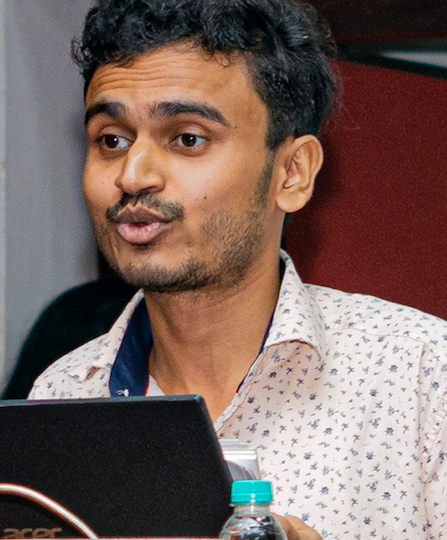Navigating Life with Dyspraxia and Stammering: A Journey from Challenges to Advocacy
By Puneet Singh Singhal, Co-founder Billion Strong
Born in the heart of New Delhi, within the confines of a slum, my early life was marred by the dual challenges of poverty and a tumultuous family environment. My father, an alcoholic, provided little stability, compelling me to undertake odd jobs to support my education. Adding to these difficulties, I was diagnosed with dyspraxia and a stammer. These conditions made everyday tasks and communication exceptionally challenging. However, these very challenges have shaped my path towards becoming an advocate for the inclusion of persons with disabilities and neurodivergent conditions. Growing up with dyspraxia, a condition that affects motor skills and coordination, meant that simple activities like tying shoelaces or riding a bicycle were Herculean tasks. My stammer added another layer of complexity, making verbal communication a source of anxiety and frustration. School was a battlefield where every spoken word felt like a struggle, and every playground game highlighted my differences. Despite these obstacles, I was determined to pursue my education. Odd jobs such as delivering newspapers, working at roadside stalls, and assisting in local shops provided me with the means to continue my schooling. These experiences, though grueling, instilled in me a resilience and a deep understanding of the hardships faced by those at the margins of society.

As I matured, I channeled my experiences into advocacy work. My lived experience with dyspraxia and stammering provided me with a unique perspective that I leveraged to highlight the challenges faced by individuals with disabilities and neurodivergent conditions. I became a voice for those who often go unheard, advocating for inclusive policies, better accessibility, and a more compassionate society. A significant part of my advocacy is dedicated to caregivers, an often neglected yet crucial segment of the community. Caregivers, whether family members or professionals, provide essential support to individuals with disabilities, yet their contributions are frequently overlooked. They navigate a maze of emotional, physical, and financial challenges, often with little recognition or support. My advocacy efforts emphasize the importance of acknowledging and supporting caregivers, as their well-being directly impacts the quality of care they can provide. Living in New Delhi, the world’s most polluted city, adds another layer of complexity to the lives of disabled and neurodivergent individuals. The harsh environmental conditions exacerbate existing health issues and create new challenges. Poor air quality can lead to respiratory problems, which are particularly debilitating for those with physical disabilities or neurodivergent conditions that may affect breathing or sensory processing. Climate change and its implications disproportionately affect vulnerable populations, including those with disabilities. Extreme weather events, rising temperatures, and increasing pollution levels create an inhospitable environment that heightens the struggles faced by these individuals. Through my advocacy, I strive to bring attention to these issues, sharing stories of how climate change impacts disabled and neurodivergent communities. My goal is to influence policies that consider the unique needs of these populations in environmental planning and disaster response strategies.
My journey from a slum in New Delhi to becoming an advocate for disability inclusion has been shaped by the challenges of living with dyspraxia and stammering. My lived experiences fuel my passion for advocating for those with disabilities and neurodivergent conditions, as well as the caregivers who support them. I am committed to raising awareness about the additional vulnerabilities posed by climate change, striving to create a more inclusive and compassionate society for all.


